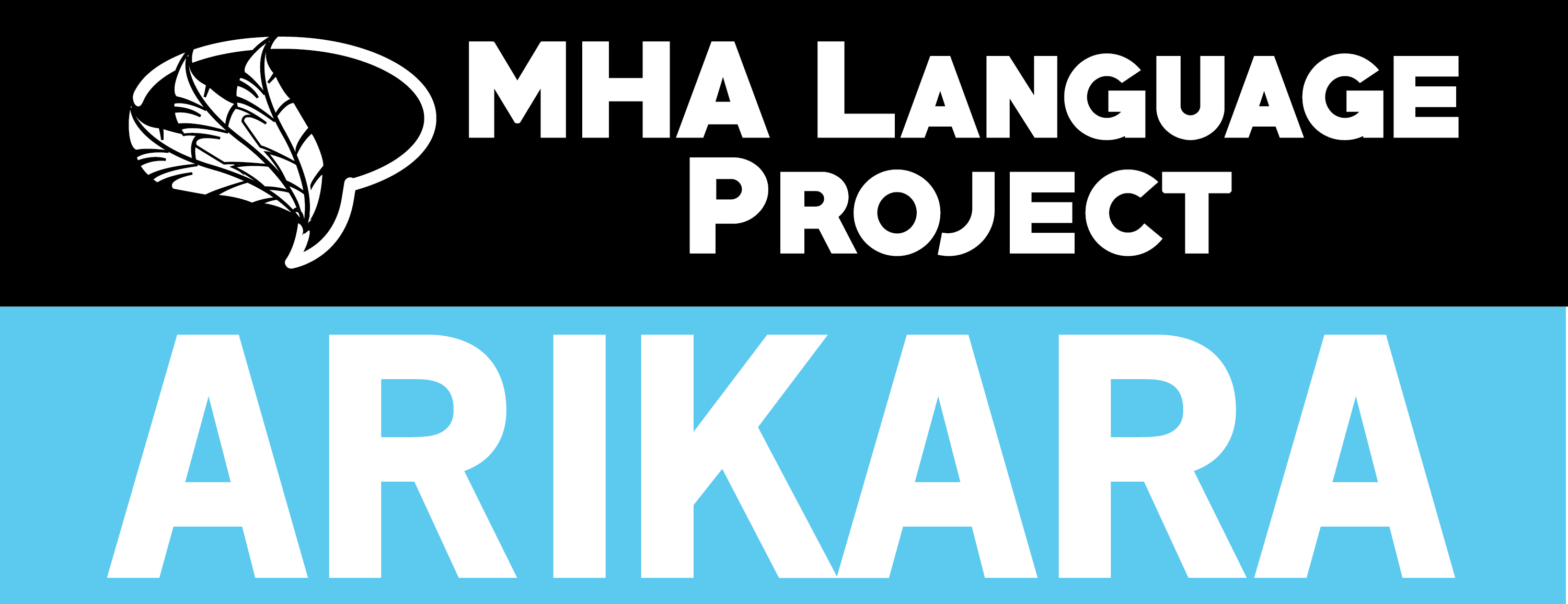Glottal stop: You may notice that in Arikara, the apostrophe appears in certain words. This symbol corresponds to a sound called the glottal stop. This sound can be found right in the middle of the word ‘uh-oh’, right after ‘uh’ but before ‘oh’. Try saying ‘uh-oh’, but before you go on to say ‘oh’, keep your mouth still! Now try breathing – when you make a glottal stop, the back of your mouth closes which is why you can’t seem to take a breath of air.
Capital Letters: Capital letters in Arikara indicate “whisper vowels.” These appear as either just a single vowel or next to a capital N, R, or W. These sound much breathier. Try pulling your tongue to the back of your mouth and breathing out, making a sound like the wind. Trying saying “ah”, “wah”, “nah”, “roo”, and “ee” with just using that wind as your voice.
Stress accent: words in Arikara have accent marks that look like this: á, í, and é. These marks mean that certain parts of the words sound stronger meaning that they tend to sound longer, louder, and also have a higher pitch. For instance, notice that the English words ‘produce’ (fruits and vegetables) and ‘produce’ (to make something) sound very similar, but they’re actually different! In ‘produce’ (fruits and vegetables), the first part of the word tends to sound longer, louder and with higher pitch. The opposite is true for ‘produce’ (to make something).
x: The letter x in Arikara is a sound that does not appear in English. To produce this sound, prepare to say the sound k, but instead of making the sound that would normally sound like k, make a hissing noise like a cat. Make sure that the back of your tongue is almost touching the roof of your mouth.
r: The letter r in Arikara is a sound that does not appear in English. To produce this sound, tap your tongue against the roof of your mouth behind your front teeth.
| Letter | Mandan word example | Listen | Meaning |
a |
áxkU |
 |
|
A |
haakAxtáwa |
 |
|
aa |
akaánu’ |
 |
|
č |
čiwáku’ |
 |
|
e |
etčiísu’ |
 |
|
ee |
neétAhkas |
 |
|
h |
hukós |
 |
|
i |
ituúnu’ |
 |
|
I |
naapIhúxu’ |
 |
|
ii |
wiítA |
 |
|
k |
kataánuʼ |
 |
|
n |
neéšu’ |
 |
|
N |
NAhtásu’ |
 |
|
o |
ápos |
 |
|
oo |
koóxu’ |
 |
|
p |
páh |
 |
|
r |
apáru’ |
 |
|
R |
wáRUx |
 |
|
s |
saawiitakaá’ |
 |
|
š |
šakuúnu’ |
 |
|
t |
taráhUx |
 |
|
u |
nút |
 |
|
U |
čítUx |
 |
|
uu |
kuúNUx |
 |
|
w |
wáh |
 |
|
W |
WIsuúka’ |
 |
|
x |
xaátš |
 |
|
‘ |
skariwíru’ |
 |

